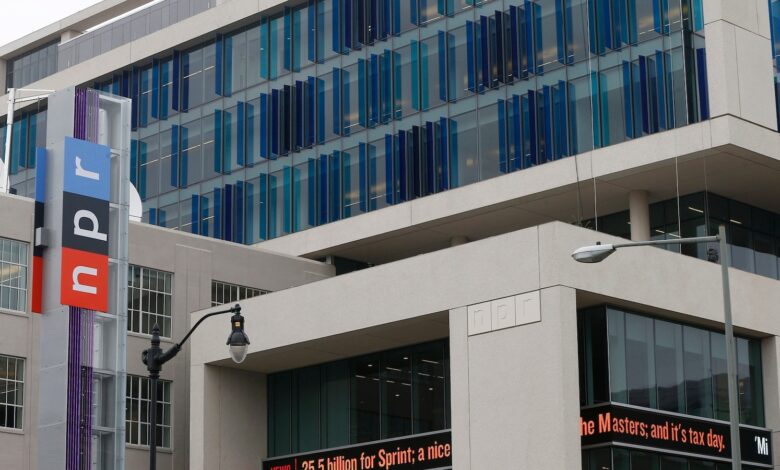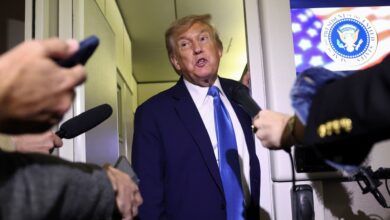CPB fires back at Trump’s executive order pulling funding for NPR, PBS

The nonprofit organization overseeing National Public Radio (NPR) and the Public Broadcasting Service (PBS) has responded strongly to President Donald Trump’s recent executive order to pull funding for these media outlets. The Corporation for Public Broadcasting (CPB) has emphasized that their funding is controlled by Congress, not the president.
CPB’s President and CEO, Patricia Harrison, made it clear that CPB is not under the president’s authority as a federal executive agency. She highlighted that Congress directly authorized and funded CPB to operate as a private nonprofit corporation independent of the federal government. The legislation creating CPB expressly prohibits any federal entity from exerting control over educational television or radio broadcasting, CPB, or its grantees and contractors.
President Trump’s executive order, signed aboard Air Force One en route to Florida, directs CPB to cease direct funding to NPR and PBS. The order aims to block federal funding to these media outlets to the maximum extent permitted by law and prohibits indirect funding through local public radio and television stations that receive CPB funds.
The order mandates CPB to revise its General Provisions to explicitly ban any form of funding to NPR and PBS, direct or indirect. It also instructs federal agencies to terminate existing funding to these outlets and review grants and contracts for compliance. Furthermore, it calls for an investigation by the Federal Communications Commission and relevant agencies into any potential unlawful discrimination by NPR and PBS.
The White House alleges that NPR and PBS have promoted partisanship and left-wing propaganda using taxpayer dollars. In response, PBS President and CEO Paula Kerger expressed concern about the impact of a loss in federal funding, particularly on rural communities that rely heavily on government support for access to stations and programming.
Kerger emphasized the importance of PBS in creating educational and children’s content, as well as providing critical emergency alerts. She warned that smaller stations could face existential challenges without federal funding, jeopardizing their continued existence.
Both NPR and PBS receive funding from a mix of public and private sources, with CPB contributing a portion alongside donations from individuals, foundations, and corporations. At a House hearing in March, NPR’s President and CEO Katherine Maher reiterated NPR’s commitment to journalistic integrity and independence, emphasizing that editorial decisions are made independently from corporate or governmental influence.
The battle over funding for NPR and PBS continues amidst concerns about the future of public media and its role in providing diverse, educational, and unbiased content to audiences across the country. The Corporation for Public Broadcasting (CPB) plays a crucial role in overseeing a wide range of media organizations, from American Public Media to Native Public Media and Public Media in Mid-America. These organizations are vital in providing diverse and informative content to the public, including NPR and PBS.
Recently, there has been a heated debate surrounding the funding of NPR and PBS, with President Donald Trump signing an executive order to end taxpayer funding for these liberal media outlets. This decision has sparked strong reactions from both sides of the aisle, with Republicans applauding the move as a step towards cutting funding for what they perceive as left-leaning propaganda, while Democrats argue that NPR and PBS provide essential fact-based and impartial news coverage to millions of Americans.
Senator Tom Cotton from Arkansas commended President Trump for the decision, stating that taxpayers should not be forced to subsidize what he calls “far-left propaganda outlets” like NPR. On the other hand, Representative Adam Smith from Washington criticized the move, warning that cutting funding for NPR and PBS could lead to a decrease in access to unbiased news for millions of Americans.
It is important to note that these public media organizations were created under an act of Congress and cannot be eliminated through an executive order. As the debate continues, it is likely that legal challenges will be made to contest the ruling and ensure the continued funding for NPR and PBS.
In conclusion, the CPB’s oversight of these media organizations is crucial in providing the public with a diverse range of content and news sources. The debate over funding for NPR and PBS highlights the importance of these organizations in providing unbiased and informative news coverage to millions of Americans. The future of public media funding remains uncertain, but it is clear that these organizations play a vital role in our society.





